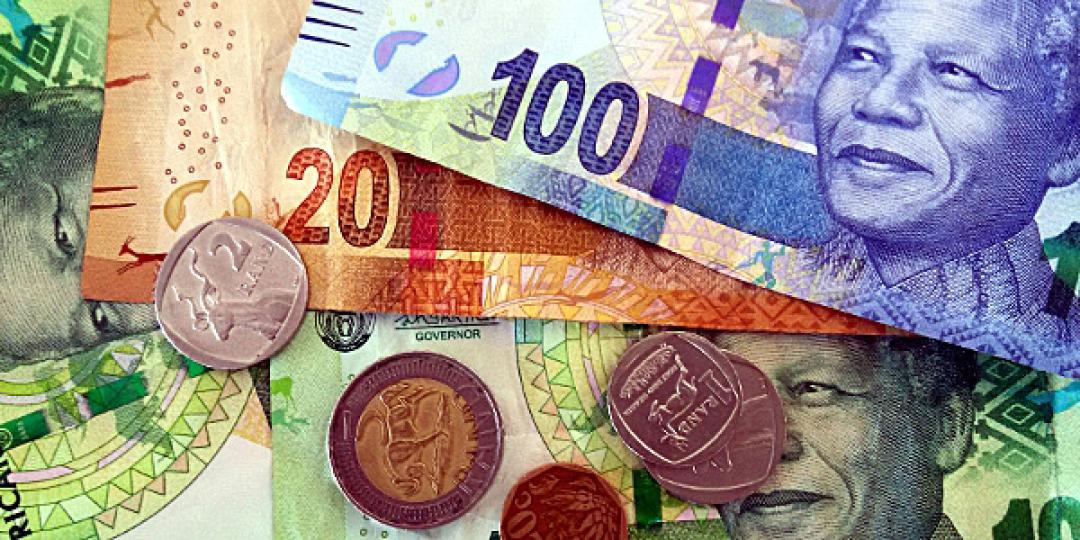The rand continues to devaluate, and something must be done before things get much worse Photo Freight News
South Africa – The recent historic low of the rand has sparked concerns about the country’s economy and the impact it will have on consumers. The devaluation of the rand is a serious concern and serious measures need to be taken to rectify the issues at hand.
The devaluation of the rand should be understood within the context of a volatile global economy, where exchange rates fluctuate and certain currencies, like the US dollar, hold a dominant position, explained Dominic Brown, Economist at Alternative Information and Development Centre (AIDC). There are a number of factors that influence the exchange rate like political issues and geopolitical conflicts.
“The latest reduction in the value of the rand comes about following the BRICS meeting that’s taking place and the fact that Vladimir Putin, the President of Russia, is being allowed to enter South Africa. The US, in a situation where there’s lots of geopolitical conflict in the world, is responding negatively to allowing Putin into the country.
Interest rate hikes as a safeguard measure
Recently the South African Reserve Bank increased the interest rate and while the decision sparked concerns about the state of the country’s economy, it was done to protect the rand and make it more attractive to foreign investors.
“The idea of hiking interest rates is to, within this global economy, make the rand more attractive and more lucrative to non-resident bondholders. Those are investors coming from out of the country. The higher interest rate means it’s more profitable to purchase South African bonds. This is to try and safeguard the rand against large levels of capital outflows as so-called investors seek to purchase dollars as opposed to rands.”
However, recent interest rate hikes have yet to yield the expected improvement in the exchange rate. This outcome suggests that investors may be concerned about the state of the South African economy, given challenges such as loadshedding, budget cuts, austerity measures, and tightening monetary policy. When coupled together they could cause greater levels of unemployment and inequality.
SMread: Service delivery woes infuriate Roshnee residents
Implications of the rand devaluation
It is important to consider the implications of currency depreciation. The devaluation of the rand carries several implications for the economy and consumers. The costs of our loans and services could dramatically increase as the rand continues to devalue, explained Brown.
“The first thing is, 55% of total external debt is owed in foreign currency, mainly dollars and euros. We’ve lost more than 15% in the value of the rand over the past week alone. The implication is that automatically the cost of the loan increases dramatically 5 to 20%. That means our debt levels grow. The second implication relates to the question of import costs and we have to import Brent Crude fuel. When we import petrol and you’re paying dollars for it, the devaluation of the rand and the increased cost of the dollar would increase fuel costs which is likely to result in rising petrol costs within the country.”
The rising costs of fuel will have a direct implication for many aspects of the economy both in terms of production and consumption. While an improved exchange rate may benefit exports and revenue, the increased cost of imports must be considered. If the export growth does not outpace the rise in import costs, the trade balance could decline, potentially leading to a trade deficit.
Alternatives to interest rate hikes
Protecting the currency is undoubtedly crucial, but resorting to interest rate hikes alone is a false solution. Such an approach has negative implications, including growing debt levels, a contracting economy, and the potential for a future recession.
“We should look at alternative measures to protect the value of the currency through exchange rate strengthening and exchange controls. Secondly, we should be looking to reduce the levels of costs in society by putting in stronger price controls. Capping the level and the increases in prices across the economy”
The historic low of the South African rand poses significant challenges to the country’s economy and consumers. While interest rate hikes have been implemented to protect the currency, they have not yielded the desired results. To address the situation effectively, alternative measures such as exchange rate strengthening, and price controls should be explored. By safeguarding the currency’s value and mitigating rising costs, South Africa can navigate this economic challenge and protect the welfare of its citizens.
Dominic Brown engaged in a fascinating conversation with Inayet Wadee, exploring unconventional strategies to safeguard the South African rand without resorting to interest rate hikes and the implications of the rand devaluing while shedding light on potential paths forward for the nation. Listen to that discussion here:
